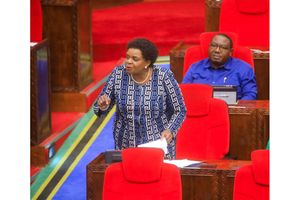EDITORIAL: MAKE VETTING OF NGOS TRANSPARENT AND FAIR

The government will soon embark on a nationwide audit of all non-governmental organisations (NGOs) in a move it says is meant to ensure the organisations operate within the law and adhere to the purpose for which they were registered. According to the NGO Registrar in the Ministry of Health, Community Development, Gender, Children and the Elderly, the exercise will run from August 21 to 31.
Among other things, NGOs have been told to produce their original registration certificates, receipts of annual fee payments and other documents pertaining to their work in the country.
The government has warned that organisations that will fail to produce the said documents risk deregistration, which means they will be expected to close shop. The order is not entirely surprising. President John Magufuli and the relevant minister have publicly spoken about the need to check NGOs. In fact, the government has since gone ahead to remove some of the tax benefits enjoyed by NGOs and abolished the boards of trustees of hundreds of charitable bodies and self-help associations over alleged breach of registration rules.
The latest audit order by the registrar has understandably set alarm bells ringing. The National Council of NGOs, a body that brings together these organisations from across the country, has subsequently expressed fear over the real intention of the NGO audit.
Its officials are of the view that the government may be out to target groups and organisations it was unconformable with, either due to the kind of work they were doing or the fact that they were rubbing the government the wrong way. They have sought assurance that they are not the target of a government crackdown or censorship.
Right or wrong
It may not be easy at this juncture to know who is right or wrong, but it is an undeniable fact that both the government and NGOs, or related community groups, need each other to function well. The NGOs or community-based organisations (CBOs) play a crucial role in national development, and this is manifest in the fact that they operate throughout the country and have in place numerous empowerment programmes. Their void will thus be a terrible blow to the overall emancipation of the Tanzanian citizenry from disease, ignorance and poverty, which are focal areas for most of these groups.
The government, on the other hand, has a point in wanting to take an inventory of NGOs and CBOs. That is why a law to govern these organisations was enacted in the fist place so that their operations are within the law. It is important therefore that to create confidence in the audit exercise, the government must assure the public that this was not an excuse to start a clampdown on civil society.
After all, very senior voices in government have been heard jeering at the work of some NGOs. It will be an unfortunate state of affairs to use the exercise to roll back advancement seen in the last few decades.
But that is not to say there has not been concerns that some people have used NGOs and CBOs to enrich themselves at the expense of the public. These kind of people are a blot and should not be tolerated. We thus hope that goodwill and transparency will ultimately be the guide for a smooth audit.




